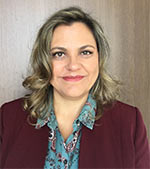- Our Story
- Publications & Resources
- Publications & Resources
- Publications
- IEEE Signal Processing Magazine
- IEEE Journal of Selected Topics in Signal Processing
- IEEE Signal Processing Letters
- IEEE Transactions on Computational Imaging
- IEEE Transactions on Image Processing
- IEEE Transactions on Information Forensics and Security
- IEEE Transactions on Multimedia
- IEEE Transactions on Signal and Information Processing over Networks
- IEEE Transactions on Signal Processing
- IEEE TCI
- IEEE TSIPN
- Data & Challenges
- Submit Manuscript
- Guidelines
- Information for Authors
- Special Issue Deadlines
- Overview Articles
- Top Accessed Articles
- SPS Newsletter
- SigPort
- SPS Resource Center
- Publications FAQ
- Blog
- News
- Dataset Papers
- Conferences & Events
- Community & Involvement
- Professional Development
- For Volunteers
- Information for Authors-OJSP
-
Home
Conferences Events IEEE Signal Processing Magazine IEEE SPL Article IEEE TIFS Article IEEE TMM Article IEEE TSP Article Jobs in Signal Processing Lectures Machine Learning Seasonal Schools Signal Processing News SPM Article SPS Distinguished Lectures SPS Newsletter Article SPS Webinar SPS Webinars SPS Webinar Series Webinar webinars
-
Our Story
What is Signal Processing?

The technology we use, and even rely on, in our everyday lives –computers, radios, video, cell phones – is enabled by signal processing. Learn More » -
Publications & Resources
-
SPS Resources
- Signal Processing Magazine The premier publication of the society.
- SPS Newsletter Monthly updates in Signal Processing
- SPS Resource Center Online library of tutorials, lectures, and presentations.
- SigPort Online repository for reports, papers, and more.
- SPS Feed The latest news, events, and more from the world of Signal Processing.
-
SPS Resources
-
Conferences & Events
-
Community & Involvement
-
Membership
- Join SPS The IEEE Signal Processing Magazine, Conference, Discounts, Awards, Collaborations, and more!
- Chapter Locator Find your local chapter and connect with fellow industry professionals, academics and students
- Women in Signal Processing Networking and engagement opportunities for women across signal processing disciplines
- Students Scholarships, conference discounts, travel grants, SP Cup, VIP Cup, 5-MICC
- Young Professionals Career development opportunities, networking
- Get Involved
-
Technical Committees
- Applied Signal Processing Systems
- Audio and Acoustic Signal Processing
- Bio Imaging and Signal Processing
- Computational Imaging
- Image Video and Multidimensional Signal Processing
- Information Forensics and Security
- Machine Learning for Signal Processing
- Multimedia Signal Processing
- Sensor Array and Multichannel
- Signal Processing for Communication and Networking
- Signal Processing Theory and Methods
- Speech and Language Processing
- Technical Working Groups
- More TC Resources
-
Membership
-
Professional Development
-
Professional Development
- Signal Processing Mentorship Academy (SigMA) Program
- Micro Mentoring Experience Program (MiME)
- Distinguished Lecturer Program
- Distinguished Lecturers
- Distinguished Lecturer Nominations
- Past Lecturers
- Distinguished Industry Speaker Program
- Distinguished Industry Speakers
- Distinguished Industry Speaker Nominations
- Industry Resources
- IEEE Training Materials
- Jobs in Signal Processing: IEEE Job Site
-
Career Resources
- SPS Education Program Educational content in signal processing and related fields.
- Distinguished Lecturer Program Chapters have access to educators and authors in the fields of Signal Processing
- Job Opportunities Signal Processing and Technical Committee specific job opportunities
- Job Submission Form Employers may submit opportunities in the area of Signal Processing.
-
Professional Development
-
For Volunteers
-
For Board & Committee Members
- Board Agenda/Minutes* Agendas, minutes and supporting documentation for Board and Committee Members
- SPS Directory* Directory of volunteers, society and division directory for Board and Committee Members.
- Membership Development Reports* Insight into the Society’s month-over-month and year-over-year growths and declines for Board and Committee Members
-
For Board & Committee Members
Popular Pages
Today's:
- Information for Authors
- (ICME 2026) 2026 IEEE International Conference on Multimedia and Expo
- IEEE Transactions on Information Forensics and Security
- IEEE Transactions on Image Processing
- (CAI 2026) IEEE Conference on Artificial Intelligence 2026
- Submit a Manuscript
- IEEE Journal of Selected Topics in Signal Processing
- IEEE Transactions on Multimedia
- Conference Call for Papers
- (ICIP 2026) 2026 IEEE International Conference on Image Processing
- (ISBI 2026) 2026 IEEE 23rd International Symposium on Biomedical Imaging
- IEEE Transactions on Audio, Speech and Language Processing
- IEEE Signal Processing Letters
- 2025 Picture Coding Symposium (PCS)
- Editorial Board
All time:
- Information for Authors
- Submit a Manuscript
- IEEE Transactions on Image Processing
- IEEE Transactions on Information Forensics and Security
- IEEE Transactions on Multimedia
- IEEE Transactions on Audio, Speech and Language Processing
- IEEE Signal Processing Letters
- IEEE Transactions on Signal Processing
- Conferences & Events
- IEEE Journal of Selected Topics in Signal Processing
- Information for Authors-SPL
- Conference Call for Papers
- Signal Processing 101
- IEEE Signal Processing Magazine
- Guidelines
Last viewed:
- IEEE Transactions on Information Forensics and Security
- 2027 IEEE International Workshop on Machine Learning for Signal Processing (MLSP 2027)
- 2030 IEEE International Conferences on Acoustics, Speech, and Signal Processing (ICASSP 2030)
- (ICASSP 2026) 2026 IEEE International Conference on Acoustics, Speech, and Signal Processing
- IEEE Journal of Selected Topics in Signal Processing
- (ICASSP 2027) 2027 IEEE International Conference on Acoustics, Speech, and Signal Processing
- Information for Authors-SPM
- Login Error
- IEEE Signal Processing Letters
- Editorial Board
- Information for Authors
- SPCOM TC Home
- (ICIP 2026) 2026 IEEE International Conference on Image Processing
- (ICME 2026) 2026 IEEE International Conference on Multimedia and Expo
- Members
Newsletter Menu
Newsletter Categories
Top Reasons to Join SPS Today!
1. IEEE Signal Processing Magazine
2. Signal Processing Digital Library*
3. Inside Signal Processing Newsletter
4. SPS Resource Center
5. Career advancement & recognition
6. Discounts on conferences and publications
7. Professional networking
8. Communities for students, young professionals, and women
9. Volunteer opportunities
10. Coming soon! PDH/CEU credits
Click here to learn more.
News and Resources for Members of the IEEE Signal Processing Society
Member Highlight: Dr. Leticia Rittner
Member Highlight: Dr. Letícia Rittner
Associate Professor, University of Campinas, Brazil
 Dr. Leticia Rittner Dr. Letícia Rittner is an Associate Professor (with tenure) at the School of Electrical and Computer Engineering, University of Campinas (Unicamp), Brazil. She is the co-founder and currently Director of the Medical Image Computing Laboratory, and also part of the Brazilian Institute of Neuroscience and Neurotechnology (BRAINN). Dr. Rittner holds a Master in Business and Administration and MSc and PhD in Computer Engineering from the University of Campinas. She held fellowships at the Montreal Neurological Institute, McGill University (Canada), and at the School of Medicine, University of Pennsylvania (USA). She was also a visiting Professor at Università degli Studi di Verona, Italy and a visiting Researcher at the Hospital Israelita Albert Einstein, Brazil. Her research field is Medical Image Processing and Analysis, developing AI-based techniques, such as segmentation and characterization of anatomical structures, to support large-scale studies. Since 2012, she runs programming workshops for children and adolescents and has an active role in promoting gender diversity in the STEM areas. She is a member of the Brazilian Society of Biomedical Engineering (SBEB), of the International Photonic Society (SPIE) and a senior member of IEEE, serving on the IEEE Biomedical Image and Signal Processing Technical Committee.
Dr. Leticia Rittner Dr. Letícia Rittner is an Associate Professor (with tenure) at the School of Electrical and Computer Engineering, University of Campinas (Unicamp), Brazil. She is the co-founder and currently Director of the Medical Image Computing Laboratory, and also part of the Brazilian Institute of Neuroscience and Neurotechnology (BRAINN). Dr. Rittner holds a Master in Business and Administration and MSc and PhD in Computer Engineering from the University of Campinas. She held fellowships at the Montreal Neurological Institute, McGill University (Canada), and at the School of Medicine, University of Pennsylvania (USA). She was also a visiting Professor at Università degli Studi di Verona, Italy and a visiting Researcher at the Hospital Israelita Albert Einstein, Brazil. Her research field is Medical Image Processing and Analysis, developing AI-based techniques, such as segmentation and characterization of anatomical structures, to support large-scale studies. Since 2012, she runs programming workshops for children and adolescents and has an active role in promoting gender diversity in the STEM areas. She is a member of the Brazilian Society of Biomedical Engineering (SBEB), of the International Photonic Society (SPIE) and a senior member of IEEE, serving on the IEEE Biomedical Image and Signal Processing Technical Committee.
We approached Dr. Leticia Rittner to learn more:
Q: What challenges have you had to face to get to where you are today?
After completing my bachelor’s degree in Electrical Engineering, I was torn between pursuing a PhD or accepting a job offer in the industry. Ultimately, I chose to work in the industry, where I stayed for seven years. Despite the great salary and everything seeming fine on the surface, I was deeply unhappy. The first major challenge I faced was leaving what seemed like a dream job with a good salary to return to being a student. I felt confused, miserable, and like a total failure. I had to convince myself that it was okay to make a U-turn in my career in order to find my truth.
Once I realized that the only person I owe an explanation to is myself, and that no one else's opinion should matter, things began to flow more easily. Along the way, tough decisions will always need to be made, and if you're constantly worried about what others think, you'll never achieve what you want or reach where you're meant to be.
Q: What was the most important factor in your success?
Perseverance and confidence are absolutely essential in academia, especially as a Latin American female faculty member in STEM. When you consider all the disadvantages and stereotypes tied to these identities, trusting in myself becomes crucial for success.
I also find focus to be extremely important, especially in research. While there’s always room to explore new fields and interests, maintaining a clear main focus is essential. I have colleagues with strong backgrounds and more experience than I do, yet they often feel unsuccessful and unappreciated. While I’ve been dedicated to research in biomedical imaging and signal processing since my PhD, some of them have dabbled in many fields without giving enough time to see the results from the seeds they've sown.
Q: How does your work affect society?
As an individual researcher, I often felt that my ability to make a positive impact on society was limited. While I can envision a computer algorithm contributing to new medical discoveries, improvements are often incremental, and the impact can feel small. However, as a research group leader-and especially as a supervisor and mentor—I truly feel that I can make a meaningful difference. By guiding and providing resources for the next generation of researchers, professors, and developers, I am amplifying my impact on society in a much broader and more significant way.
Q: What is the key take-home message would you like the readers to remember from this interview?
Stop comparing yourself and your career to others; life and career are not a race or a competition, and it’s not you against someone else. Life-and your career-is a journey, a collection of experiences. There is no "right" path or choice, only the path you choose at any given moment. Follow it, enjoy it, and most importantly, don’t feel bound to it for the rest of your life. Feel free to take a detour, pause for a rest, or even start over if that’s what feels right for you.
Q: Failures are an inevitable part of everyone's career journey. What is the most important lesson you have learned from dealing with failures during your career?
After every failure, there is a period of mourning where feelings of frustration, self-doubt, or regret often surface. This phase can last anywhere from a few seconds to several weeks, depending on the expectations you had before the setback. However, each failure carries a valuable lesson. The sooner you identify what needs to be learned and move forward, the quicker you'll recover and be prepared for the next challenge.
Also, you should know that experiencing failure does not make you a failure. Every successful professional accumulates failures throughout their career.
Open Calls
| Nomination/Position | Deadline |
|---|---|
| Call for Nominations for the SPS Chapter of the Year Award | 15 October 2025 |
| Call for Papers for 2026 LRAC Workshop | 22 October 2025 |
| Submit Your 2026 ICASSP Workshop Paper | 22 October 2025 |
| Submit a Proposal for ICASSP 2030 | 31 October 2025 |
| Call for Project Proposals: IEEE SPS SigMA Program - Signal Processing Mentorship Academy | 2 November 2025 |
| Submit Your Proposals for 2026 Member-Driven Initiatives | 21 November 2025 |
| IEEE Signal Processing Society Annual Election Opens on 17 October | 4 December 2025 |
Society News
Education & Resources
Member Highlights
Publications News
Technical Committee News
SPS Social Media
- IEEE SPS Facebook Page https://www.facebook.com/ieeeSPS
- IEEE SPS X Page https://x.com/IEEEsps
- IEEE SPS Instagram Page https://www.instagram.com/ieeesps/?hl=en
- IEEE SPS LinkedIn Page https://www.linkedin.com/company/ieeesps/
- IEEE SPS YouTube Channel https://www.youtube.com/ieeeSPS
Home | Sitemap | Contact | Accessibility | Nondiscrimination Policy | IEEE Ethics Reporting | IEEE Privacy Policy | Terms | Feedback
© Copyright 2025 IEEE - All rights reserved. Use of this website signifies your agreement to the IEEE Terms and Conditions.
A public charity, IEEE is the world's largest technical professional organization dedicated to advancing technology for the benefit of humanity.









